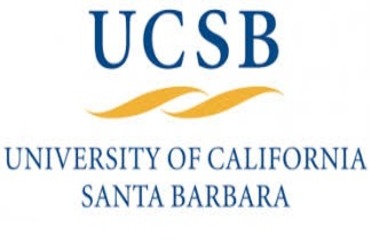
The university started offering the subject as a part of computer science course after receiving requests from the Blockchain Acceleration Foundation (BAF), a nonprofit institution made up of students, blockchain advocates, professors, and crypto enthusiasts who were eager to promote mass adoption of blockchain technology.
Cameron Dennis, President of Blockchain Acceleration Foundation and co-founder of Blockchain at UCSB, underlined that inspite of blockchain’s growing popularity on college campuses, students at UCSB earlier had lesser opportunities to get educated about the emerging technology outside of Blockchain at UCSB meetings.
After several negotiations with UCSB management, Dennis successfully persuaded the university that a computer science course centered on blockchain was required. Dennis elaborated on the course being offered:
“My goal with this course was to teach radically-curious computer science students about compelling blockchain use-cases that can disrupt society’s most entrenched institutions while revolutionizing corporate governance.”
As per the second, yearly Coinbase Report On Higher Education, published on August 28, 56% of the top 50 universities currently offer a minimum of one course on crypto or blockchain, an increase from 42% last year.
The document also found that almost double the students have opted for crypto or blockchain course in 2019, compared with 2018.
The Coinbase report also pointed out that even though computer courses mainly concentrate on blockchain (32.2% accounting), business, finance and economic courses also teach blockchain.
UCSB’s course, titled “Decentralized Ledger Technology,” taught students about consensus mechanisms, Bitcoin and Proof of Work, Ethereum Virtual Machine, Solidity and smart contract development, algorithmic stablecoins, zero-knowledge proofs and other relevant blockchain topics.
UCSB’s course, named “Decentralized Ledger Technology,” tutored students about consensus mechanisms, Ethereum Virtual Machine, Solidity and smart contract development, algorithmic stablecoins, Bitcoin and Proof of Work, zero-knowledge proofs and other appropriate blockchain subjects.
The course was taught by Professor Murat Karaorman, with lectures from notable industry leaders. This includes co-founder of Orchid Labs and developer of Cydia, Jay Freeman, Head of Backend Services at MakerDAO, Niklas Kunkel, Research Scientist at Protocol Labs, Evan Miyazono and CBC Casper Researcher at Ethereum Foundation, Aditya Asgaonkar.
As per Protocol Labs’ Miyazonon, it is crucial for universities to begin offering certificate blockchain courses as the path breaking innovation continues to be adopted by mainstream at a rapid pace.
“Blockchain projects and the general set of distributed applications will transform many industries and address the important issues of our time. With these tools, we can build better, more equitable, collaborative, shared systems, whether it’s secure and decentralized data storage networks or permissionless identity solutions.”
Furthermore, Miyazonon believes that university courses are needed to fight the hoopla and scandals that are generally linked with the blockchain and crypto sector:
“The space is fraught with hype and misleading claims. I had the pleasure of meeting a number of students in the UCSB class who were an impressive balance of well informed, optimistic, and critically insightful. I wholly believe that there are few institutions better suited to instill and foster these qualities than accredited courses at universities.”
While UCSB finished their initial blockchain centered course, Ripple’s blockchain promotion zeal, University Blockchain Research Initiative (UBRI), has devoted more than $50 million financing to 29 universities across the globe, after rolling out the program in June 2018.
As per Ripple, the financing permits academics and university administrators to operate on exploring crucial problems confronted by blockchain, while tutoring students about the subject.
Notably, renowned universities such as MIT and Stanford University are also offering blockchain courses since last year. Davis and Kirk McGregor, blockchain Advisor at the University of California, pointed out that blockchain will have an impact on economic advancement and social rehabilitation and therefore classes on blockchain are must needed.
“Understanding blockchains is crucial for both technical advancements in digital services and for policy improvements in a community. Scholastic accreditation of curricula for blockchains and their analogues ensures not only high-quality education but also cultural alternatives to orthodox business practices, both of which significantly influence economic development and social reform.”